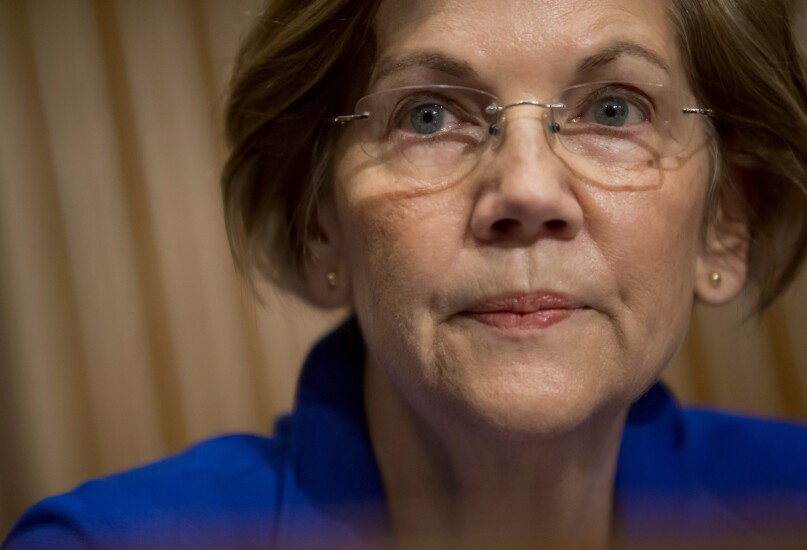
Key policymakers to watch in 2018
That theme will likely continue in 2018, with the key policymakers being those at the center of the regulatory-relief debate. New regulators will take the helm of agencies that now have a much different focus than they did following the crisis. The key agency heads will likely be weighing changes related to capital requirements, a new federal fintech charter and regulatory treatment of industrial loan companies.
In Congress, key lawmakers will try to continue their progress in passing a bipartisan regulatory-relief bill while also tackling other big legislative issues such as reforming the government-sponsored enterprises.
The still-volatile political environment in D.C. could still have reverberations for banking policy. The leadership shuffle at the Consumer Financial Protection Bureau will likely continue to spark a partisan backlash as decisions by acting CFPB Director Mick Mulvaney (whose oversight of the agency is still being challenged in court) will be put under the microscope. There will also likely be a guessing game over who the Trump administration will nominate long term for the CFPB and other agencies.
The 2018 midterm elections mean there is potential for more political shifts, with Democrats hoping to ride the momentum of their early special-election victories to take back control of the House or Senate, or both. That would shine a light on key Democratic leaders eyeing committee gavels and other high-profile roles in the new Congress.
Here is a list of the key policymakers to watch in 2018:

Acting CFPB Director Mick Mulvaney

Comptroller of the Currency Joseph Otting
Otting’s regulatory policy positions will likely come into clearer view in 2018. Perhaps most notably, the new comptroller will get to decide the fate of the OCC’s fintech charter proposal. The agency began constructing a new charter under former Comptroller Thomas Curry, but it is not clear whether the agency will move forward on accepting applications. In his first comments to reporters since being sworn in, Otting indicated that he does see a future for a fintech charter, though the exact parameters of such a charter are still unclear.

Jelena McWilliams

Jerome Powell and Randal Quarles

Senate Banking Committee Chairman Mike Crapo, House Financial Services Committee Chairman Jeb Hensarling

Key Democrats in Congress
But the profile of Democrats such as Brown, Sen. Elizabeth Warren of Massachusetts and House Financial Services Committee ranking member Maxine Waters, could rise dramatically next fall if either chamber (or both) flips to Democratic control in the midterms. Analysts say that is increasingly possible after Democratic victories in recent special elections. If the Senate changes hands, and Brown wins his reelection campaign, he will be the likely Banking Committee chairman starting in 2019. If the House falls under Democratic control, Waters will likely chair the Financial Services Committee.

A GOP successor to Hensarling

Mark Calabria
Calabria, who now services as chief economist to Vice President Mike Pence, is increasingly seen as an important figure in the administration on financial services issues. A former GOP congressional staffer, Calabria could be considered for open regulatory positions, but he also may have a key role in advising the White House on its positions regarding GSE reform, the structure of the CFPB and other issues.






